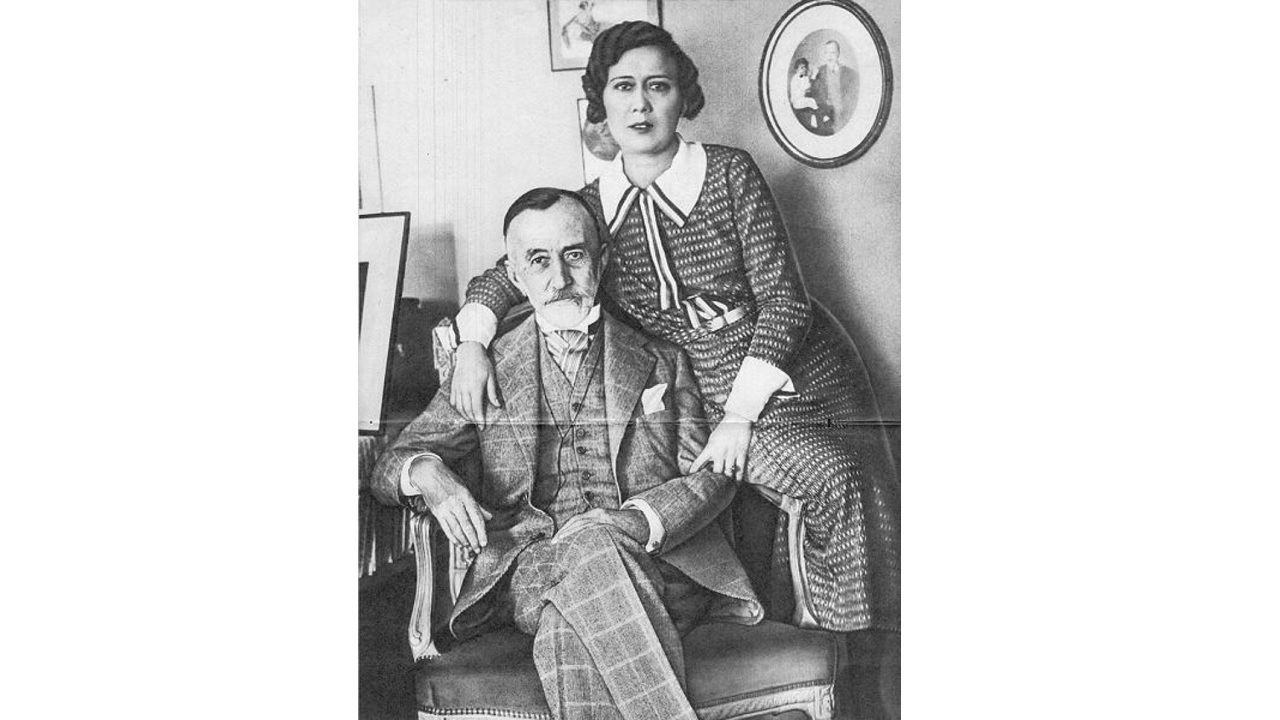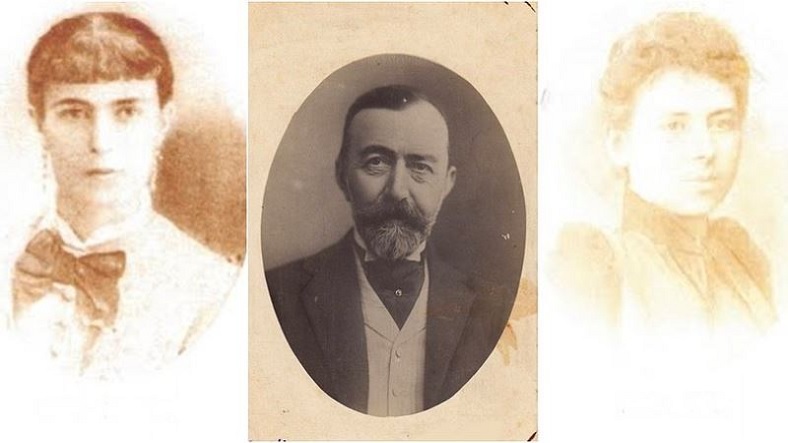The poem Makber, which is accepted as one of the works that best describes pain and death in Turkish poetry, was penned by Abdülhak Hamit Tarhan, who has the title of Poet Azam; It has one of the most remarkable stories in our literary history. Let’s take a closer look at Makber’s poetry and poet.
Throughout the thousands of years of Turkish history, unforgettable works have been sung and written by many different writers and poets. In Turkish literature, which was influenced by eastern and western cultures over time, some works managed to write their names in golden letters. One of them is the Makber poem. According to many Makber’s poem is one of the works that best describes pain and death.
Although the poem is known to everyone Many people do not know whose work is Makber. The story of Makber’s poem, which was penned by Abdülhak Hamit Tarhan, who is known as the Poet Azam in our literature, is one of the most interesting stories in our literary history, apart from its fascinating narration. Let’s get to know the poem Makber and the master poet who wrote this poem a little more closely.
Whose work is Makber? Let’s get to know:
Our diplomat, poet and playwright Abdülhak Hamit Tarhan, who wrote the Makber poem, lived between January 2, 1852 and April 12, 1937. He has given numerous works to Turkish literature. Coming from a deep-rooted family, Tarhan has worked in consulates in many different countries of the world throughout his life due to being a diplomat.
Abdülhak Hamit Tarhan, who is also known as Şair’i Azam, who was also an Istanbul deputy for three terms, throughout his years in office. He had the opportunity to get to know both eastern and western literature closely. Although he wrote countless poems and plays, Makber’s poem, in which he started the European Turkish Poetry movement, is his best known work.
What does Makber tell, why did Abdülhak Hamit Tarhan write Makber?

Considered by many to be one of the works that best describe death and pain in Turkish and world literature. The Makber poem was written after Abdülhak Hamit Tarhan lost his first wife, Fatima Hanım. Abdulhak Hamit Tarhan and his wife Fatima Hanım’s stories of meeting and being together are just as romantic.
Abdulhak Hamit Tarhan does not like anyone easily, but Fatima Hanım is caught as soon as she sees it. So they get married right away. Tarhan, who says that he often avoids Fatima Hanım in his memories, lives the love of his dreams. Although they have been separated many times due to their duties in different countries, his mind is always with his wife.
in 1883 They learn that Fatima Hanım has tuberculosis. Together they go to Bombay, where Tarhan is assigned. It is thought that the air of this place will be good for Fatima Hanım. Abdülhak Hamit Tarhan wrote many works in Bombay, but his wife’s condition became worse than expected.
In 1885, the family got together and decided to return to Istanbul. While they were taking a break from their journey in the mansion of Beirut Governor Nasuhi Bey. Fatima Hanım dies. Abdülhak Hamit Tarhan stays in Beirut for 40 days and goes to his wife’s grave every day in mourning. Makber’s poem was also written in this process.
Did Abdülhak Hamit Tarhan really marry the woman he met at his wife’s funeral?

Let’s come to the rumor side of the event. Abdülhak Hamit Tarhan has always been referred to as a womanizer. No matter how much she loves Fatima Hanım, it is mentioned that she broke some walnuts in the countries where she was assigned. There are even those who do not find the Makber poem he wrote to his wife sincere, because allegedly, the poet married a woman he met at his wife’s funeral. So, is this story true?
Immediately after Fatima Hanım’s death, Abdülhak Hamit Tarhan There are two English ladies whose name is mentioned; Nelly Clower and Lady Florence Gors. Allegedly, he may have met one of these two ladies at his wife’s funeral and fell in love. According to another claim, he met these two ladies in London, where he went to work. When we look at the official records, we see that he married Nelly Clower in 1890.
Frankly, it doesn’t seem easy for a person who wrote the Makber poem to fall in love with another person before his wife’s forty. But life goes on. Of course, Abdülhak Hamit Tarhan fell in love again and married twice more. But we cannot open the heart and look. Read the Makber poem and make your own decision.
Makber’s poem:
Oops!. No place, no half left,
My heart was full of ah-u zar.
Now it was here, gone,
He went from eternity to eternity.
I went, he remained hâksar,
Tarmar remained in one gousha;
After all, from that enis-i tongue, alas!.
One tomb remained in Beirut.
Where should I look for that dilrübâ?..
From whom should I ask that bi-neva?..
Let me know where, where is the Lord?…
Who threw me in this trouble, Yarab?..
They say: “Forget that familiar,
He went and kept the mortgage…”
Do you fit in this dream, this truth? ..
Can my eyes see this adventure? ..
How have I changed so quickly?
He can’t take it, my dream, my dream.
I see something, it’s like a tomb,
The more you look, the more it takes, it’s like a wound.
Let’s make good looks with shapes,
It increases again, my mourning, my dear,
This is a sadme-i revolution,
I don’t know, is it close, my dear?
Get out of Fatima, rise from the tomb,
Carry on as you are in my life,
Do not hinder this consent, say a word,
I would like ah, such a word…
Be inclined like roses,
Find a cure for the mountain-ı tongue, be merciful:
With a sweet look, with a smile,
Ayyâm, complete my life.
Makber, what is that place I see?
Is it such a revâ câ-yı dilber?..
It’s an experience, it’s a trick.
No, this is an occasion for my destruction..
Look, what has changed, salamander!..
Rose face, look, what a glorious road…
Your hate, this black and white hate,
Feryâd is tâ-be-mahşer to this state..
Lord, enlighten me an angel,
And test me like this:
Let me see it from that place,
Let the light come out of the earth, O God.
Dermiyan the maksûd-i life,
Explain what is Ferda-yi-fiser!.
Ya make my mind to your soul isal
O Allah, honor my soul.
The resident has suffered, the remedy has gone,
My homeland of Guya has gone aside;
I stayed at home forever,
I stayed in a tomb-i bi-hope.
From my horizon, that prisoner has gone,
A matla’-ı şeb-nisâre went…
I saw your face, the example of cruelty,
Matla’ went to him for a sitâre…
I saw your face in turab,
I came, I searched in the book.
A life comes, it is from the did,
I can’t say it’s gone, it’s good for the grave.
What is this zero in hisâb?.
Erkam is in revolution for him.
A nothing-i-wujûd, or,
It is a grave in agony.
